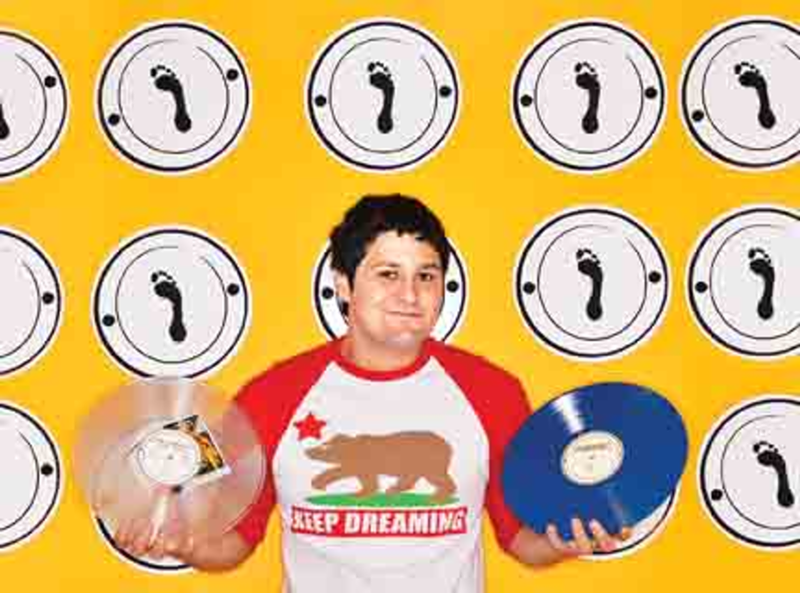N
orth Carolina’s Holy Ghost Tent Revival shimmies and shakes like a mashed-up Squirrel Nut Zippers and DeVotchKa. Nashville’s Modoc exudes a thunderous Hard Rock-meets-Americana vibe, like Aerosmith arm wrestling with Marah. Lexington, Ky.’s Matt Duncan makes ’70s-influenced Dance Pop, smartly nodding in the soulful direction of Mayer Hawthorne. Chicago’s Scattered Trees sway to the gently melodic breezes of early Wilco and Elliott Smith, while California’s Big Tree offers ethereal sonic hints of Fiery Furnaces and Arcade Fire as influenced by The Roches.
These five rather disparate artists have two things in common: Their albums are available as vinyl releases, and they’re labelmates on Cincinnati-based Soul Step Records.
Clearly Soul Step doesn’t adhere to genre limitations on its roster, which is exactly how owner/operator Melvin Dillon envisioned his label. In Dillon’s paradigm, it’s not the type of music that’s important; it’s simply the music itself.
“I was thinking what I would have liked when I was playing music when I was younger,” Dillon says from his almost supernaturally organized North Avondale headquarters/apartment. “I would have died to have music on that format, to have someone come in and really hone the financial end of it.”
Dillon’s entrepreneurial obsession with vinyl grew naturally enough from a relatively fresh collector’s perspective. After catching the vinyl virus five years ago, Dillon quickly fulfilled the majority of his want list, leaving him with what he refers to as “white whale” records, titles that are ridiculously rare and prohibitively expensive.
“My trips to the record store became fruitless, and I got discouraged that this thing I loved so much was coming up empty,” he says. “I started to think about the records I didn’t own, and if I was going to invest that much money, why don’t I see if I can make these things myself? That was the germ of what became Soul Step Records.”
Dillon’s life experience was the perfect corollary to starting a record label. The West Virginia native has lived a gypsy life due to his retail management day job — he’s been a Cincinnati resident since 2011, the year he started Soul Step — and he saw a good deal more of the country as a touring musician, a stint that introduced him to Scattered Trees, his initial signing.
After fleshing out his business plan — the label pays all production costs, splitting the profits with bands after the initial investment is recouped — and approaching Scattered Trees about being his vinyl test case, Dillon had to figure out how to do what record labels do: mastering, pressing, printing, distributing. He was familiar with United Record Pressing in Nashville, the plant that manufactures product for Jack White’s Third Man label, so he made an exploratory call to the company.
“I reached out to Jay Millar, who’s the director of marketing, and said, ‘Do you mind if I pick your brain really quick?’” says Dillon with a laugh. “I had no idea how busy and influential this gentleman was, but he was kind enough to walk me through the mistakes that rookies make so that the first thing I did wasn’t a complete disaster.”
Dillon maintains a relationship with Millar, consulting with him whenever he has a crazy idea. For the Matt Duncan album, Dillon wanted to press a real tarot card inside clear vinyl. After a few failed attempts, United Record Pressing realized Dillon’s vision with spectacular results.
Dillon also advocates for true analog sound on his vinyl output. Some of his first releases were recorded digitally and remastered for vinyl, but a couple of imminent releases are being recorded to tape for the old-school fidelity and warmth that vinyl aficionados crave. He’s also helping revive the custom of etching messages in the tail out space; “12th and Vine” on the Modoc album refers to where Dillon and the band met to sign contracts.
Vinyl is clearly making a comeback; digital albums sales continue to decline while unit sales of vinyl continue to climb. The increasingly feverish anticipation of Record Store Day is not only reflecting this trend, it’s helping to drive it. Dillon, who also DJs under the nom du spin DJ Soul Step, is on the frontlines as both provider and collector.
“The latest Daft Punk album sold more vinyl than CD, and you can tell it’s getting legs as the big labels are sinking their teeth into it because they see the profitability,” Dillon says. “That’s a double-edged sword. It’s great because the medium is growing and gaining attention, but it’s also scary because they’re the ones that ruined it in the first place.
“Vinyl will never be a dominant art form; digital will own that for the foreseeable future, and that’s fine for the passive listener. But anyone who engages, whether they’re an audiophile or just a die-hard fan of a particular artist, is going to connect with and understand vinyl. I want to influence the younger crowd; that’s why we do the limited edition colored vinyl, to drive purchases to people who wouldn’t necessarily buy it and to bring new people into the fold. That’s one of the reasons we want Soul Step to grow; it’s not only to support independent artists but to build the medium at the same time.”
For a sampling of SOUL STEP RECORDS’ offerings, visit soulsteprecords.com.


